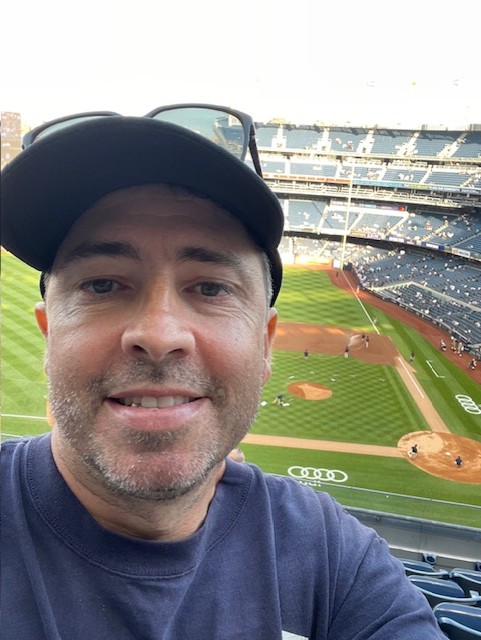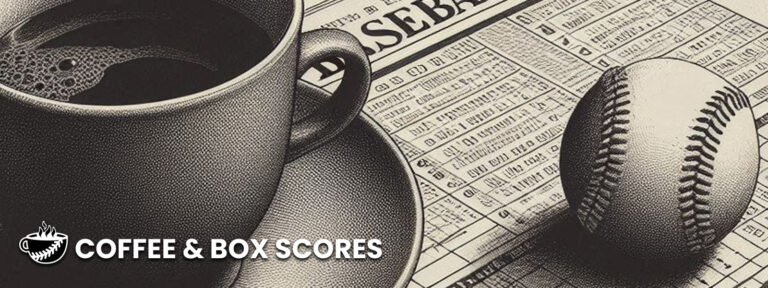With the Hall of Fame ballot available for assigned voters to muse over, I’m reminded of the thought I had at this time last year: This process is getting harder.
That isn’t even taking into account the lingering issue of whether to vote for players with the stigma of performance enhancers on their record, as the majority of the electorate has drawn a clear stance against them. Rather, it’s what to do with the (allegedly clean) players who didn’t reach the round numbers we’ve traditionally associated with Hall of Fame inclusion, but still deserve careful consideration for a place in the baseball firmament.
For every obvious choice like Ichiro Suzuki, or those with a strong enough résumé to suggest inevitable induction like Carlos Beltran, you have Chase Utley, or Dustin Pedroia or Félix Hernández: Players who didn’t come particularly close to the old-time benchmarks, but were certainly among the best of their era.
Nowadays, we have more thorough ways of analyzing the totality of a player’s career, which complicates the issue for those who once might have written off a candidate with relatively modest counting totals. But I also think this dilemma is a reflection of the state of a game that’s getting faster and more complex with the infusion of technology and data, making it harder for even the best players to thrive for extended periods.
Does that mean we should be focusing more attention on the players who prove capable of dominating this increasingly challenging game for shorter periods? By extension, is a guy who’s good enough for a single season to win the sport’s most prestigious individual hardware – the Most Valuable Player Award – worthy of induction by that merit alone?
Following that logic to the Baseball Reference awards index page, I quickly determined that no, we shouldn’t be making such a drastic leap. The Hall of Fame (in my opinion) should remain a home for those who excelled against their peers time and again, excluding those who may have achieved the extraordinary for a season or two before capitulating to the forces of regression.
That said, with the hard-working writers at Coffee & Box Scores yet to receive their own official ballots to fill out, I thought it would be a fun exercise to go through the MVP winners of the past 15 years and ascertain each player’s Hall of Fame chances.
2024: Aaron Judge (AL), Shohei Ohtani (NL)
Assuming they reach the requisite 10 MLB seasons, these two are going in. Next!
2023: Shohei Ohtani (AL), Ronald Acuña Jr. (NL)
Acuña is obviously off to a hell of a start, but we’re also two torn ACLs into his career, and he wasn’t exactly lighting the world on fire before getting hurt this past year. Can he rebound to remain healthy and productive enough to attain the longevity needed for the Hall?
2022: Aaron Judge (AL), Paul Goldschmidt (NL)
Goldie’s got a pretty good case for induction. Along with this MVP win, he finished second in the balloting twice, third once and sixth twice; he’s also earned four Gold Gloves and seven All-Star selections. The counting stats aren’t huge, but he could reach 400 homers, 500 doubles and 2,500 hits with a few more solid years, numbers that should help get him over the top.
2021: Shohei Ohtani (AL), Bryce Harper (NL)
Harper is clearly going in as well, even if the time lost to various injuries ultimately cancels out his early head start toward monstrous lifetime totals. Interestingly, his career slash line of .281/.389/.522 looks pretty similar to Goldschmidt’s .289/.381/.510.
2020: José Abreu (AL), Freddie Freeman (NL)
Abreu’s MLB career got off to a late start due to his time in Cuba, and the drastic drop-off after turning 36 ended any shot of a late surge propelling him into the Hall. Still, he was a consistent middle-of-the-order threat during his time in Chicago, reeling off a strong eight-year run from 2014-21 in which he slashed .290/.350/.515. Consistency has also been the name of the game for Freeman, who’s firmly established himself as one of the game’s premier hitters over the past decade, and may well have punched his ticket to the Hall with an emphatic 2024 World Series showing against the Yankees.
2019: Mike Trout (AL), Cody Bellinger (NL)
Trout is a no-doubter, even if we’ll always wonder what sort of stratospheric lifetime numbers he could have reached before the injuries dragged him back to Earth. Bellinger has suffered his own injury-related decline, namely from the surgically-repaired shoulder that’s kept him from reprising the lofty power numbers of his early career. While a strong 2023 shows he can still be an impact player, Bellinger will likely need to remain productive through his 30s to have a legitimate shot at winning over Hall voters.
2018: Mookie Betts (AL), Christian Yelich (NL)
Betts is another shoo-in. He’s received MVP votes in nine of his 10 full seasons, finishing second three times, fifth once, sixth once and eighth once. Yelich’s award came after the first of a two-year run in which he posted an MLB-best 171 OPS+ to stake his claim as the best hitter in the game. He hasn’t come close to replicating that production since then, and while he was excellent in the first half of 2024, he has his work cut out for him as he enters his age-33 season on the mend from back surgery.
2017: Jose Altuve (AL), Giancarlo Stanton (NL)
Altuve is a three-time batting king, a two-time stolen base champ and likely headed for 3,000 career hits. That should be enough to overcome any lingering resentment for his connections to the trash can scandal, especially since both he and the Astros kept chugging along at a high level in its aftermath. Stanton is a very interesting case; his recent years have been curtailed by injuries, but he still may reach 500 home runs, and his reputation for postseason heroics will give his candidacy a little extra momentum.
2016: Mike Trout (AL), Kris Bryant (NL)
With Rookie of the Year and then MVP accolades after his first two seasons, Bryant was set to reign as one of the faces of MLB for the next decade-plus. He remained an All-Star-level player over the next few years with the Cubs, but his numbers have nosedived in Colorado, of all places, and it’s hard to imagine Bryant getting back on a Hall of Fame track after three straight injury-marred seasons.
2015: Josh Donaldson (AL), Bryce Harper (NL)
At his best, Donaldson was a two-way force who combined power, on-base skills and excellent glovework to become a perennial MVP candidate. He also was a polarizing player who didn’t excel long enough to mount a plausible case for induction.
2014: Mike Trout (AL), Clayton Kershaw (NL)
Two of their generation’s best at their respective positions, two who will have their plaques ready to go upon retirement.
2013: Miguel Cabrera (AL), Andrew McCutchen (NL)
One of the greatest right-handed hitters in history, Miggy is in. McCutchen was an outstanding all-around player in his prime, finishing in the top five of the NL MVP balloting in every year from 2012-15, but his return to the pack after that point means he’ll have to settle for a spot in the Hall of Very Good.
2012: Miguel Cabrera (AL), Buster Posey (NL)
Posey is another interesting case. He only played 12 years, so none of the counting stats will jump out at you. Still, he was a potent hitter (.302/.372/.460 career line, five Silver Slugger awards), an excellent defensive catcher and an integral part of three World Series-winning teams. I say he’s in.
2011: Justin Verlander (AL), Ryan Braun (NL)
With the end of a dominant MLB career on the horizon, Verlander can start writing up his Hall acceptance speech now. Braun’s case isn’t strong enough even if you removed the PED connections, but with a .296/.358/.532 slash line and 352 home runs over 14 seasons, he certainly was among the standout hitters of his era.
2010: Josh Hamilton (AL), Joey Votto (NL)
With the increased attention devoted to mental health nowadays, you have to wonder if Hamilton could have forged a longer career if he’d arrived a decade later. Still, he reached some impressive heights in the bigs, culminating with this all-world season. Votto is something of a poster child for the modern Hall candidate. Despite falling short in many of the traditional categories, with “only” 2,135 hits, 356 homers and 1,144 RBI, he also led the league in OBP seven times and forged an impressive .409 mark for his career. Throw in his reputation as a beloved teammate and goofy interview subject, and the goodwill will likely help carry him to Cooperstown.
.
Thanks to Baseball Reference and its extraordinary research database, Stathead, for help in assembling this piece.

Tim Ott
Tim's early yearnings for baseball immortality began on the dirt and grass of the P.S. 81 ballfield in the Bronx. Although a Hall of Fame career was not in the cards, his penchant for reading the MLB record book and volumes of history tomes led to an internship with MLB.com in 2002. Tim fulfilled an array of roles over the next nine years at the company, from editorial game producer to fantasy writer and editor and reporter for MLB-related promotions. While a busy freelance writing career has since taken him in other directions, Tim has always kept baseball in his heart, and is happy to be back to observing and reflecting on our great pastime.


